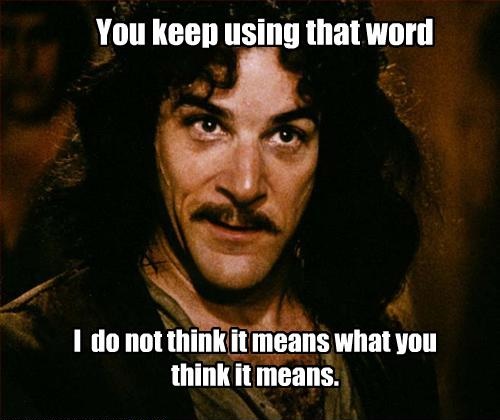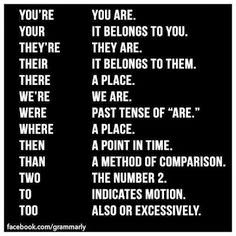Part 1: Look it up!
Part 2: Read it out loud.
Part 3: Have someone who knows what they're doing read it.
Part 4: Consistency, consistency, consistency!
Part 5: Dialogue tag...you're NOT it!
This is part six of my series, Tips for Editing Your Manuscript from a Real-Life Editor, and this time, I want to drill into your brains the importance of actually using the word you should be using.
Part 6: Pick the right word to say what you mean.
This simple task, when employed with your manuscript or article or whatever you're writing, can save you a lot of trouble. Acquisitions editors will think you're awesome and be more likely to contract your work; your readers will tell their friends to read your work because you're so well-spoken; your grandchildren and great-grandchildren will tell stories around the campfire about your legendary grammar skills...
Okay, maybe not that last one, but you get the idea.
Hey, I know you guys are smart--just do a little research and that will go a long way. In other mediums, like blogging or texting or tweeting or Facebooking, it helps you not look like a moron or like you don't care. No, I'm not exaggerating; that's what I think when I silently judge people's writing. I can tell the difference between someone who knows their grammar and simply got screwed by auto-correct or made a typing error because they were in a hurry (both happen to everyone, myself included), and someone who has no idea how words work.
Now, I'm pretty sure I touched on this subject a bit in Part 1 (see the links above), but I wanted to go a little more in depth here.
The most common errors I see are the ones you mostly see as well: you're, your, they're, their, there, we're were, where, then, than, two, to, too. This handy-dandy guide takes all the guesswork out of it.
And while you're at it, go ahead and "like" the Grammarly page on Facebook. That's where that graphic came from, and they're awesome.
There are also commonly confused words and homophones. These things give me trouble too; I can't use "accept" or "except" or "affect" or "effect" without having to look them up. It's getting irritating, but for some reason they just don't stick in my head.
But never fear! Here are two handy links to help.
This one helps with commonly confused words. The most common one I see as an editor is "farther" and "further", though there are tons.
This one is all about homophones. Homophones are words that sound the same, but are spelled differently and mean different things. "Waist" and "waste" are biggies...no one wants to read about the hero in your romance novel putting his hands around the heroine's waste. That's just gross. You want to make your readers smile, not gag.
 |
| If there was EVER an appropriate time to use this picture, it's here. |
Hope this one was helpful! Do you have a word that constantly trips you up?
xoxo Sarah

No comments:
Post a Comment